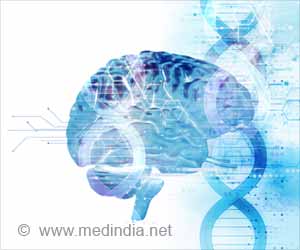World Alzheimer’s Day is celebrated on 21st September every year. It aims to create awareness about Alzheimer’s disease and show support and solidarity towards those living with the condition.
- World Alzheimer’s Day is being celebrated on Saturday 21st September 2019
- This year’s theme focuses on ‘Ending Stigma’, which is associated with Alzheimer’s disease
- Ending stigma will help Alzheimer’s patients to lead a better, respectable and dignified life
Read More..
History of Alzheimer’s Disease in a Nutshell
Alzheimer’s disease is named after Dr. Alois Alzheimer, who first described the disease in 1906. Dr. Alzheimer observed changes in the brain tissues of a woman who had died from an unusual mental illness characterized by memory loss, language problems, and abnormal behavior. While closely examining the brain, he found abnormal clumps (now known as Amyloid plaques) and bundles of tangled fibers (now known as Tau or neurofibrillary tangles). Ever since this seminal discovery, the disease has been known as Alzheimer’s disease. Alzheimer’s Day was first launched on 21st September in 1994 at a conference held in Edinburg, Scotland to mark the 10th Anniversary of ADI. The hashtag for World Alzheimer’s Day is #WorldAlzheimersDay, which can be used to generate buzz on social media platforms such as Facebook, Twitter, and Instagram.World Alzheimer’s Day 2019 Theme Focuses on ‘Ending Stigma’
The 2019 World Alzheimer’s Day Theme is ‘Let’s Talk about Dementia: End the Stigma’. As there is an urgent need to break the stigma, stereotypes and myths surrounding an Alzheimer’s diagnosis, an open dialogue is encouraged between various stakeholders.The stigmatization and misinformation associated with dementia in general and Alzheimer’s disease, in particular, is a major global problem. Alzheimer’s patients are often ostracized and insulted by people in public places. They are often the subject of unpleasant jokes, thoughtless comments and rude stares by people who don’t understand the realities of the condition.
Alzheimer’s disease also has an ‘image problem’ as it is perceived as an ‘older person’s disease,’ despite the fact that Alzheimer’s can strike at a younger age – between 40 to 50 years. Therefore, young adults should also come forward to raise awareness so that people come to know that Alzheimer’s is everyone’s problem and not just an ‘old person’s problem’.
World Alzheimer’s Day is an ideal opportunity to change people’s perceptions, which will help enormously to reduce the stigma associated with Alzheimer’s. The day is being celebrated around the globe in United Kingdom (UK), Canada, United Arab Emirates (UAE) and New Zealand.
Alzheimer’s Disease: Facts and Figures
- Every 68 seconds, someone in the world develops Alzheimer’s disease
- 50 million dementia patients are present worldwide of which 24 million are Alzheimer’s patients
- 68 percent of dementia patients by 2050 will be from low- and middle-income countries (LMICs)
- Alzheimer’s and other dementias are the top cause of disabilities in later life
- Alzheimer’s disease is most prevalent in the western world and least prevalent in Sub-Saharan Africa
- From 65 years of age, the risk of developing Alzheimer’s doubles every 5 years
- From 85 years of age, 1 in 4 women and 1 in 5 men have Alzheimer’s
- 4 million people in India have dementia, of which the majority are Alzheimer’s patients
- 40 percent of people above 60 years have Alzheimer’s disease in Hyderabad, India
- 4 in 10 people diagnosed with Alzheimer’s also have psychosis in Hyderabad, India
- 2 in 3 people with Alzheimer’s are women
- 1 in 4 people with Alzheimer’s disease have a confirmed diagnosis
- 30 percent of Alzheimer’s patients also have heart disease
- 29 percent of Alzheimer’s patients also have diabetes
- 70 percent of Alzheimer’s patients don’t respond correctly to conventional treatments
- Alzheimer’s disease cannot be cured
- Alzheimer’s disease has physical, psychological, emotional, social, and economic impacts
- Lifetime cost of care of a single Alzheimer’s patient is USD 150,104
- Prevention of Alzheimer’s could save 30 percent of the cost of care
Current Status of Alzheimer’s Research
Alzheimer’s research is being pursued avidly by scientists across the globe. In fact, there are 525 clinical trials of Alzheimer’s drugs that are currently ongoing. There are over 5,000 clinical study sites with over 5,500 Principal Investigators worldwide. Of these, 65 study sites are in South Asia, with the majority located in India.Alzheimer’s Research Efforts in India
Alzheimer’s research is being actively pursued in India. The Department of Science & Technology (DST) under the Ministry of Science & Technology, Government of India, is providing funding to premier institutes in India for Alzheimer’s research through its Cognitive Science Research Initiative (CSRI). Some examples of Indian research efforts are highlighted below:- National Brain Research Center (NBRC), Manesar: Scientists at NBRC are using artificial intelligence (AI) to develop a diagnostic platform that can predict the onset of Alzheimer’s disease at an early stage
- Indian Institute of Science (IISc), Bengaluru: IISc scientists have identified a potential early biomarker for Alzheimer’s, which could be used for early diagnosis of the disease
- National Institute of Mental Health and Neurosciences (NIMHANS), Bengaluru: Physician-scientists at NIMHANS have developed a Tau protein-based immunotherapeutic approach for treating Alzheimer’s disease
- Indian Institute of Integrative Medicine (IIIM), Jammu: Scientists at IIIM have developed a sustained-release herbal drug ‘IIIM-141’ based on Saffron flower extracts, which delays the progression of Alzheimer’s disease. The drug has been licensed to Pharmanza Herbals in Gujarat and will be marketed as a dietary supplement under the brand name ‘Saffrentine’
The World Alzheimer’s Report 2019 – A Key Document for Advocacy Efforts
The World Alzheimer’s Report 2019, developed by Alzheimer’s Disease International (ADI), will be released on World Alzheimer’s Day. This extremely important document is based on ADI’s global survey of people’s attitudes towards Alzheimer’s disease and dementia. This comprehensive survey included nearly 70,000 respondents from over 140 countries across the globe. This document will be very useful for advocacy efforts to initiate dialogue with governments around the world, particularly in the area of risk reduction and prevention of Alzheimer’s disease.Tips for Coping with Alzheimer’s Patients – Key Things to Remember
In order to cope with Alzheimer’s patients, the following points should be kept in mind:- Patients should be asked only one question at a time as their brain requires time to process the information
- A daily routine should be maintained so that patients know when to do what
- If patients panic, they should be reassured so that they feel safe
- Feelings of patients should be gauged to assess their state of mind, despite their inability to express themselves properly
Conclusion
World Alzheimer’s Day is an ideal time to get involved in raising awareness and showing support and solidarity for people living with Alzheimer’s. It’s also a time to take action to weed out stigma that surrounds Alzheimer’s disease. Each day is a new opportunity, so by working collectively, we can make a real difference in the lives of Alzheimer’s patients and their families.References:
- World Alzheimer’s Day - Alzheimer’s Society: United Against Dementia - (https://www.alzheimers.org.uk/get-involved/world-alzheimers-day)
- Dementia - World Health Organization (WHO) - (https://www.who.int/news-room/fact-sheets/detail/dementia)
- S&T Ministry Supports Solutions for Mental Health Challenges Like Alzheimer & Dementia - Department of Science & Technology, Ministry of Science & Technology, Government of India - (https://dst.gov.in/news/st-ministry-supports-solutions-mental-health-challenges-alzheimer-dementia)
- Walk to End Alzheimer’s: Together, We Can End Alzheimer’s - Alzheimer’s Association - (https://www.alz.org/)
Source-Medindia










